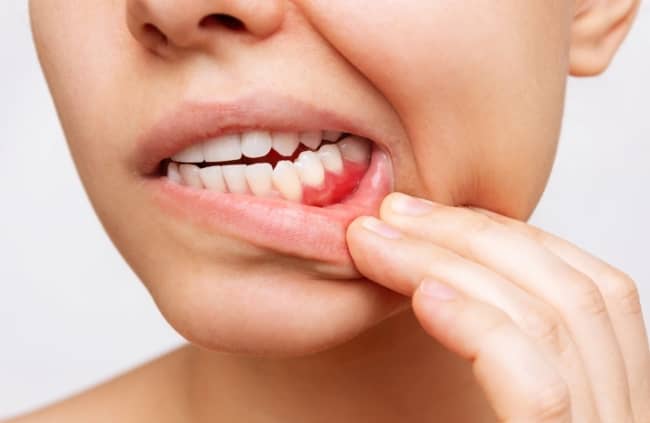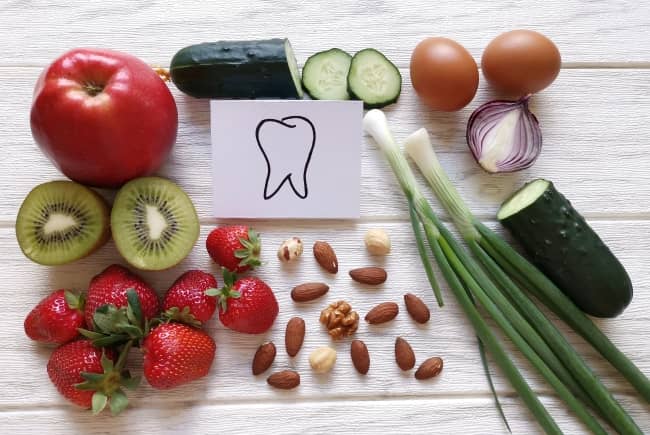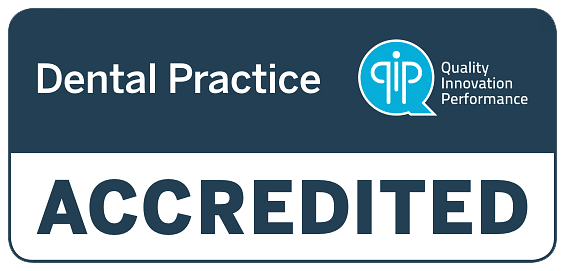Your genetics can play a significant role in your dental health, affecting everything from the shape and size of your teeth to the strength of your tooth enamel.
While good dental hygiene is the most important aspect of keeping your teeth and gums strong and healthy, it can be helpful to be aware of possible dental conditions you may be predisposed to.
Even with the best dental hygiene, genetics may put certain individuals at a higher risk of tooth decay or gum disease. Read on to learn more about the possible connections between genetics and dental health, and the steps you can take to keep your mouth, smile, gums, and teeth healthy.
The Role of Genetics in Dental Health
Your genetics dictate several aspects of oral health, including how your bone and teeth structure develops, saliva composition, and teeth alignment. Each of these factors may influence how susceptible you are to certain dental issues.
The Role of Genetics on Saliva, Tooth Shape, and Tooth Alignment
Fluoridated water is proven to help prevent tooth decay, but your saliva also plays a role in oral health. The chemical composition of your saliva affects your body’s ability to neutralise acids from the foods and drinks you consume. Depending on your saliva composition, you may be more prone to the development of decay and cavities.
Your tooth shape and alignment also affect how healthy your mouth is. Teeth with large gaps or crevices between them make it easier for acids and debris to lodge in these spaces, increasing your risk of tooth decay.
The Impact of Genetics on Tooth Decay
Cavities are often the result of a lack of proper oral hygiene, but some individuals may be genetically predisposed to tooth decay. Certain individuals respond to bacteria differently, leaving them at an increased risk of tooth decay.
Studies have shown that genetic factors can account for up to 60% of the risk of developing cavities. Along with determining the composition of saliva, genetic factors can influence the development of tooth enamel, both of which can affect the likelihood of developing cavities.
The Role of Genetics in Gum Disease
Genetics can also play a role in the development of gum disease. Certain genetic variations can increase the risk of developing gum disease, and individuals with a family history of gum disease may be more susceptible to the condition.
While further research is needed on the connection between genetics and gum disease, genetics may be linked to an increased risk of aggressive or chronic periodontitis.

The Role of Genetics on Tooth Enamel
Your genetics play a role in determining how hard or soft your tooth enamel is. Individuals with softer tooth enamel are more susceptible to damage from bacteria and acids. Softer tooth enamel also increases the risk of cavity formation.
The Role of Genetics on Behaviour and Oral Health
Certain dental disorders are hereditary. Although some dental issues are due to genetics, other oral health problems can be a result of learned behaviour. Often, children end up adopting family habits.
For instance, if you grew up in a household where soft drinks and candy were common, you likely have a higher craving for sweets. You can also end up with certain oral bacteria by sharing utensils with family members.
Genetic factors can also influence the type of foods you gravitate toward. If you consume a lot of sugary foods or acidic beverages, you are at a significantly higher risk of tooth decay, gum disease, and oral health problems.
This makes it important to talk with your family about their health and dental history and be aware of any areas you may be more prone to oral health issues.
To protect your oral health, it is also key to eat foods for healthy teeth, such as:
- Dairy products (cheese, milk, unsweetened yoghurt)
- Pears
- Leafy greens
- Eggs
- Beans and legumes
- Lean protein
- Nuts and seeds
- Celery
- High-fibre foods
- Apples
- Cucumbers
- Carrots
- Fatty fish (sardines, salmon, anchovies, mackerel, etc.)
- Black or green tea (especially when consumed as a replacement for soft drinks or sugary beverages)

Genetics and Orthodontic Treatment
The shape and size of your teeth can be influenced by genetics, which can impact the need for orthodontic treatment. Individuals with crowded or misaligned teeth may be more likely to require braces or other orthodontic treatments.
The Importance of Good Oral Hygiene
While genetics and dental health are linked, it is still important to practice a good oral hygiene routine to help prevent dental issues and maintain healthy teeth and gums.
A good oral hygiene routine is crucial for everyone, but it is especially important for individuals with an increased risk of tooth decay or gum disease.
Here are tips for maintaining a good oral hygiene routine:
- Brush your teeth twice a day with a soft-bristled toothbrush and gentle circular motions
- Floss every day
- Eat a balanced, nutritious diet
- Ask your dentist if you should be drinking fluoridated water and using a fluoridated mouthwash
- Avoid or limit your consumption of acidic and sugary foods and drinks
- Avoid excess alcohol consumption
- Avoid tobacco products
- Quit smoking
- See your dentist for regular checkups and cleanings
Genetic Testing for Dental Health
While genetic testing for dental health is still a relatively new field, it may become more widely available in the future. By understanding your genetic risk factors for dental problems, you may be able to take proactive steps to prevent or manage these issues.

Keep Your Smile Healthy With Chelmsford Dental
Do you have concerns or questions about genetics and oral health? Are you struggling with tooth decay or gum disease even though you brush twice a day and floss every day? We are here to help.
Chelmsford Dental is your trusted, family-friendly Perth dentist. We offer a welcoming, relaxed atmosphere where patients can feel truly at ease.
If you have concerns about your oral health, our skilled team is here to ensure you receive the highest quality care to help support a healthy smile for a lifetime. Contact us today with any questions or to book an appointment.






